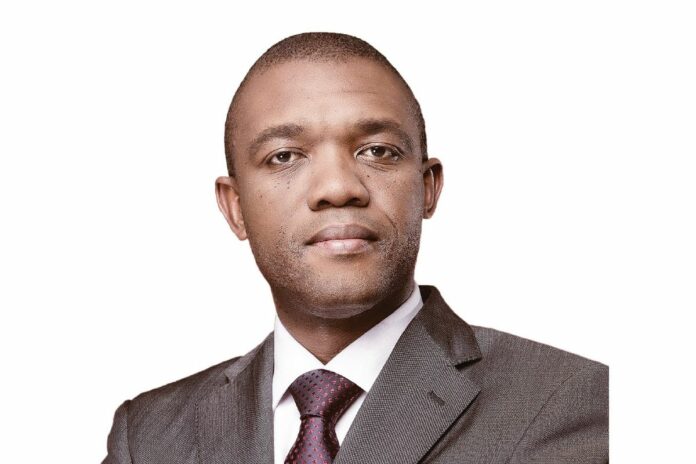The crisis at the Road Accident Fund (RAF) has deepened, with explosive allegations of financial mismanagement, vacant executive posts, and questionable investment practices.
This is according to a hard-hitting internal memorandum tabled before parliament’s standing committee on public accounts (Scopa).
The memorandum, authored by Scopa chairperson Songezo Zibi and dated June 19, paints a picture of an organisation in freefall, replete with vacant senior positions, billions of rands lost to default judgments, and governance so porous that “alarm bells ring at first glance”.
The document, supported by whistleblower revelations, lambasts the RAF board and CEO for what Zibi calls an “avoidable failure” and a “convoluted structure with numerous governance problems”.
At the heart of Scopa’s concern is a raft of top-level vacancies that have persisted for over two years.
Most damningly, the RAF has no chief claims officer or head of claims operations — the very officials responsible for processing the claims that are the fund’s core function.
“It is puzzling and alarming, considering that both positions have been vacant for more than two years,” Zibi writes.
“Good governance and active management would have demanded that the board and CEO prioritise these vacancies, but this does not appear to be the case, with no accountability whatsoever for such an avoidable failure.”
Panel of attorneys fired
The vacancy crisis extends further; the role of head of legal services has also been empty for over two years, leaving the RAF’s litigation — a critical part of its business — adrift.
Zibi reveals that the acting official, Mampe Khumalo, “does not have a law degree [but holds other non-legal qualifications], yet prior to becoming chief governance officer, she was acting head: legal services”.
The result? RAF management was “unaware of a scathing judgment handed down against the RAF on May 6 for approximately R6-million”.
Perhaps most eyebrow-raising is the revelation that the RAF, while lacking a functional legal department, fired its entire panel of attorneys “without an effective plan in place to replace such services —a matter which the SIU [Special Investigating Authority] is investigating”.
This move has “so far caused over R4-billion in default judgments”, Zibi writes, adding that interest continues to accrue on these unpaid amounts, constituting “fruitless and wasteful expenditure”.
In a move that would make any auditor wince, the RAF’s belated attempts to overturn these judgments have led to “punitive costs, which taxpayers must bear”.
Compounding the collapse, Zibi notes the legal team has shed five members in a matter of months — including the head of legal services.
Background checks not conducted
The rot runs deeper. The head of the enterprise risk post — vital given the fund’s exposure to fraud, financial losses, and corruption — is vacant.
So is the head of people management, leaving the RAF essentially leaderless in terms of human resources as it undergoes “wholesale restructuring and change”.
Meanwhile, under the chief strategy and transformation officer, both the head of strategy and head of customer experience roles are gathering dust, a situation Zibi calls particularly troubling “given that the RAF is a customer service organisation”.
Zibi’s memo further spotlights a “highly unusual” chief investment officer post, held by a suspended acting incumbent, Sefotle Modiba, who, according to the memo, left the City of Johannesburg under a cloud of “serious misconduct charges” and then “misled the committee about the circumstances surrounding his departure”.
The RAF failed to conduct the necessary background checks”. The rationale for this position is, at best, opaque.
“It thus remains unclear why the position of chief investment officer is necessary,” Zibi writes, noting that, by law, public entities like the RAF must deposit excess funds with the Corporation for Public Deposits — not manage their investments.
Fertile ground for irregularities
Conflicting answers from RAF management only fuel suspicion. “In October 2024, the CEO stated that the RAF only has a bank call account,” Zibi notes.
‘However, in March 2025, the CEO revealed that the RAF has investments but cannot disclose them because “there are people who are after that money. This reasoning is illogical.”
The memo also reveals that Mpho Manyasha holds both the chief corporate support officer and head of the CEO’s office roles, an arrangement Zibi calls “strange”.
According to whistleblower accounts, Manyasha controlled “88 contracts totalling just over R1.95bn”.
Zibi notes pointedly: “She therefore simultaneously exercises executive power for which she has not been graded and not vetted, nor has her name been submitted for vetting.”
In a parting shot, Zibi concludes: “Clearly the status quo is providing fertile ground for irregularities, financial mismanagement, and corruption to occur. This is a convoluted structure with numerous governance problems.”



